Summer Archives
Priya TrivediLa Merced, Peru - Foundation for International Medical Relief of Children (FIMRC) - Project La Merced |
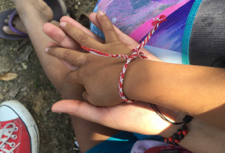
"El Amor Chanchamayano" - Local Roots of Global Health
Entering a new culture means entering a new world. And in that new world, the idea of service must be redefined. Love of language, appreciation of tradition, willingness to adapt, and eagerness to learn all play a crucial role. Without an understanding of local people and integration with newfound culture, progress in professional areas is limited.
I spent this June and July with the Foundation for International Medical Relief of Children (FIMRC), in La Merced, Peru. FIMRC’s mission is to “improve the health of families in the developing world through the implementation of innovative and self-sustainable health improvement programs” (FIMRC). In La Merced I partnered with hospitals and native communities, working on clinical rotations, health campaigns, educational presentations, and a few independent projects. However, above anything else, this summer was about cultivating strong, trusting ties with native Ashaninkas and Chanchamayans, sharing beautiful life moments together, and showing them we have just as much to learn from them as they do from us.
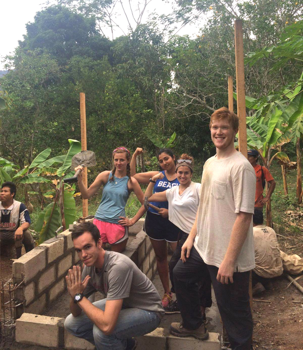 In the heart of the Peruvian jungle, national pride runs deep in the veins of locals, and they are hesitant to stray from long-lasting traditions in most areas of life. As such, FIMRC has integrated into the area by forming partnerships with hospitals, respecting the practices of local doctors, and approaching health promotion and education in a dialogue-heavy and inclusive manner. Health campaigns were held in La Merced and surrounding cities every week, with not only the opportunity for basic health check-ups, but also an open-forum area where locals could discuss health issues and voice what was most needed in their cities. Presentations on different aspects of health education, called charlas, were carefully researched and prepared after asking native community members exactly what they wanted. Every week with the community of Belen, we discussed nutrition and dental hygiene – the two topics they needed most information about. They then identified the danger of a hole-in-the-ground bathroom, so we set up a meeting with architects and native builders and began building a composting bathroom together. When the mountain community of Incariado was concerned with a spike in teen pregnancies, we delivered consistent information on sexual education, STI prevention, and safe sex practices. Elder women of Incariado noticed teen mothers were carrying a larger load than their partners, so we then partnered with a local women’s empowerment group to provide charlas on gender equity, effective parenting, and domestic violence prevention.
In the heart of the Peruvian jungle, national pride runs deep in the veins of locals, and they are hesitant to stray from long-lasting traditions in most areas of life. As such, FIMRC has integrated into the area by forming partnerships with hospitals, respecting the practices of local doctors, and approaching health promotion and education in a dialogue-heavy and inclusive manner. Health campaigns were held in La Merced and surrounding cities every week, with not only the opportunity for basic health check-ups, but also an open-forum area where locals could discuss health issues and voice what was most needed in their cities. Presentations on different aspects of health education, called charlas, were carefully researched and prepared after asking native community members exactly what they wanted. Every week with the community of Belen, we discussed nutrition and dental hygiene – the two topics they needed most information about. They then identified the danger of a hole-in-the-ground bathroom, so we set up a meeting with architects and native builders and began building a composting bathroom together. When the mountain community of Incariado was concerned with a spike in teen pregnancies, we delivered consistent information on sexual education, STI prevention, and safe sex practices. Elder women of Incariado noticed teen mothers were carrying a larger load than their partners, so we then partnered with a local women’s empowerment group to provide charlas on gender equity, effective parenting, and domestic violence prevention.
I started my second month working on three independent projects, all unintentionally discovered as important initiatives through the many candid conversations I was able to share with locals. I researched how to increase access and streamline the process to obtain government provided health care, researched stigmas surrounding blood donation and how to most effectively educate locals about the benefits, and administered free eye exams in native communities to support a volunteer group bringing prescription lenses later this year.
Despite all this, at the end of my two months, the biggest lessons I learned had nothing to do with global health care or medical practices. I learned in Chanchamayo, service means people. Everything I was able to achieve was due to the trust, respect, and understanding that had to be earned from Belen, Incariado, San Ramon, Yurinaki, Pichanaki, Vitoc… the list goes on. It seems that maybe all I have to do is listen to the world around me, and it won’t be so hard to figure out what I need to do.
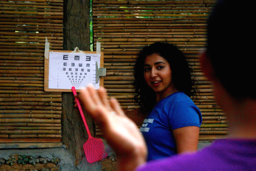
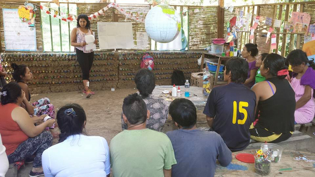
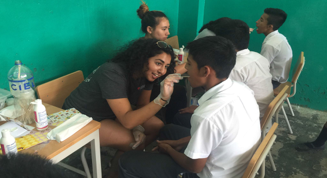
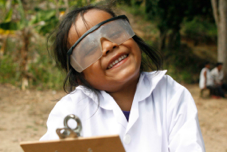
For more, please visit Foundation for International Medical Relief of Children (FIMRC).
